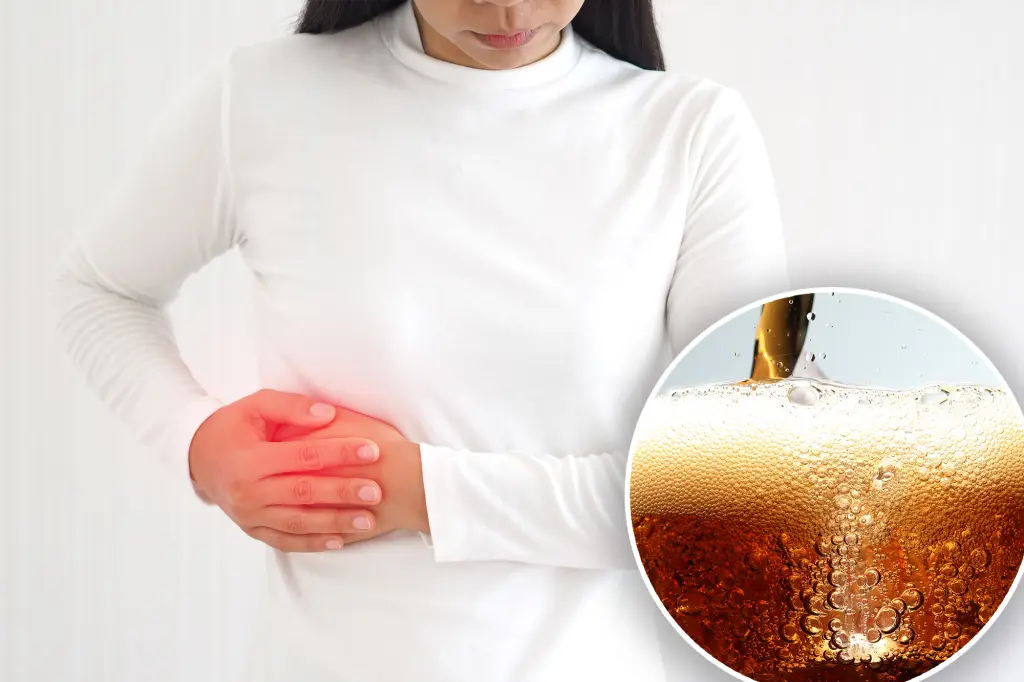Artificial Sweeteners Might Be Worse for Your Liver Than Sugar
In a health revelation that challenges conventional wisdom, a groundbreaking new study has found that artificially sweetened beverages may pose a greater threat to liver health than their sugar-loaded counterparts. The research, presented at the United European Gastroenterology Week in Berlin, links diet drinks to an increased risk of metabolic dysfunction-associated steatotic liver disease (MASLD), the most prevalent liver condition in America. “Our study shows that low- or non-sugar-sweetened beverages were actually linked to a higher risk of MASLD, even at modest intake levels such as a single can per day,” explained lead researcher Lihe Liu from the First Affiliated Hospital of Soochow University in China. This finding contradicts the long-standing belief that diet drinks represent a healthier alternative to regular sodas, suggesting that what many consumers choose as a “guilt-free” option might carry hidden health consequences.
The comprehensive study followed nearly 123,800 UK residents without pre-existing liver disease over more than a decade, carefully tracking their beverage consumption patterns. Participants regularly reported their daily intake of various drinks, with researchers monitoring who eventually developed MASLD—a condition characterized by excess fat accumulation in the liver that can lead to inflammation and damage. The results were striking: consuming more than one slim can (250ml or 8.4 fluid ounces) of diet soda daily was associated with a 60% higher risk of developing MASLD, while the same amount of regular soda carried a 50% higher risk. More alarmingly, while both beverage types contributed to fatty liver development, only diet drinks showed a connection to an increased risk of liver-related mortality. These findings add to a growing body of evidence questioning the safety of artificial sweeteners, which previous research has already linked to metabolic syndrome, Type 2 diabetes, and cardiovascular problems.
The mechanisms behind these adverse effects differ between sugary and artificially sweetened beverages. Liu explains that sugar-sweetened drinks “can cause rapid spikes in blood glucose and insulin, promote weight gain and increase uric acid levels, all of which contribute to liver fat accumulation.” Diet drinks, however, appear to “affect liver health by altering the gut microbiome, disrupting the feeling of fullness, driving sweet cravings and even stimulating insulin secretion.” This distinction helps explain why artificial sweeteners might not be the metabolic free pass many consumers believe them to be. Despite marketing claims positioning diet sodas as healthier alternatives, their impact on the complex systems regulating appetite, metabolism, and gut health may ultimately prove more detrimental than the straightforward calories in sugar-sweetened beverages.
With approximately 38% of adults already suffering from MASLD—a figure projected to rise above 55% by 2040 amid growing rates of obesity and diabetes—these findings carry significant public health implications. The condition often manifests with symptoms including fatigue, general malaise, and abdominal pain, though many cases remain undiagnosed until more serious complications develop. While the research team acknowledges certain limitations in their study—including the inability to evaluate whether particular artificial sweeteners carried greater risks than others—the overall message is clear: beverages marketed as “diet” or “sugar-free” alternatives deserve greater scrutiny regarding their long-term health effects, particularly on vital organs like the liver that play central roles in metabolism and detoxification.
The good news emerging from this research is that simple lifestyle changes can significantly reduce risk. Substituting water for sugary sodas reduced MASLD risk by 12.8%, while replacing diet drinks with water led to an even greater risk reduction of 15.2%. “The safest approach is to limit both sugar-sweetened and artificially sweetened drinks,” advises Liu. “Water remains the best choice as it removes the metabolic burden and prevents fat accumulation in the liver, whilst hydrating the body.” This straightforward recommendation offers consumers a practical way to protect their liver health without navigating the increasingly complex landscape of beverage marketing claims and counterclaims about which sweetener alternatives might be “safer” than others.
Looking ahead, Liu’s team plans to delve deeper into the biological mechanisms at play, exploring how sugar and its various substitutes interact with gut bacteria and influence liver disease progression. This ongoing research may eventually help establish clearer dietary guidelines for preventing MASLD and other metabolic conditions. In the meantime, these findings challenge both consumers and health professionals to reconsider assumptions about artificially sweetened beverages. As Liu notes, the study “challenges the common perception that these drinks are harmless and highlights the need to reconsider their role in diet and liver health, especially as MASLD emerges as a global health concern.” For the millions who reach for diet sodas as a seemingly healthier choice, this research suggests that the simplest solution—plain water—remains the most beneficial for long-term liver health.














